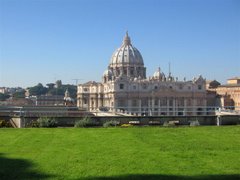Not only the demon drink but his love affair with violence has marred Mel Gibson and his work.
 The sound of idols smashing as they fall off their pedestals is always painful to ears of worshipers; the appearance of the hero’s fatal flaw and the playing out of its consequences brings a disillusioned hush to the audience. So it has been with recent news about the personal life of Mel Gibson, pin-up boy for conservatives who have seen him as a defender of faith and family values right in the fickle heart of Hollywood.
The sound of idols smashing as they fall off their pedestals is always painful to ears of worshipers; the appearance of the hero’s fatal flaw and the playing out of its consequences brings a disillusioned hush to the audience. So it has been with recent news about the personal life of Mel Gibson, pin-up boy for conservatives who have seen him as a defender of faith and family values right in the fickle heart of Hollywood.
Those of us inclined to forgive him everything for the sake of his 28-year marriage, seven children and his heroically daring film, The Passion of the Christ, now have to face the fact that, after a three-year separation, his wife Robyn wants a divorce, and that the traditionalist Catholic and family man has lost no time appearing in public with a woman whom the gossip mills allege he has been consorting with since last summer.
Nobody is perfect, artists notoriously not so. Dostoyevsky was a compulsive gambler. Dante had a wife but wrote only of the love of his life, Beatrice. Dickens kept a mistress. Mel Gibson’s fatal flaw is an addiction to alcohol which brings out not only the comic side of him but the belligerent, the reckless and the suicidal as well. It got him into deep trouble in 2005 when he spouted anti-Jewish sentiments at a (Jewish) law enforcement officer after being stopped for dangerous and drunken driving.
Many predicted then that Gibson’s career was over and that the commercial fate of his next film, Apocalypto, was in doubt. In fact, it was another huge success and was nominated for several awards. But it confirmed a trend in Gibson’s films -- those he directed or produced -- that is more worrying than his weakness for liquor and the nasty things that go with it: a portrayal of violence that borders on sadism and is certainly beyond the call of any artistic or moral purpose.
Gibson may be correct that “a great civilisation is not conquered from without until it has destroyed itself from within,” but what does it do to our civilised instincts to watch scenes of Mayan priests decapitating captives after pulling out their beating hearts, or of captives in an amphitheatre running the gauntlet of javelins, arrows and stones, only to be put to the blade if they survive, or of a huge pit filled with rotting corpses?
In The Patriot, the sadistic mass killings and burnings by the English army are almost matched by the ferocity of the hero’s vengeance. The throat slittings and torture inBraveheart are more memorable than the fabled battle scene. And yes, the prolonged scourging of Christ in The Passion is more than many pious Catholics can bear to watch. Granted, it is not half so cruel and bloody as the original event, but the attempt at realism here is ambiguous in its effects, if not intention.
The violence in these and other Gibson films seems to express more than anything an anger that, starting from a moral standpoint (injustices wrought historically by the British, the corruption of ancient cultures…) sets out to both accuse and avenge. Nothing can be too extreme in the defence of noble values.
Unfortunately, this is a trap that conservatives, as well as their radical opposites, can easily fall into. George W Bush defended human life and the family, but he also defended capital punishment and torture, and invaded Afghanistan and Iraq. Overlooking these contradictions did not help the cause of morality in the United States.
Nor does the righteous anger that moral conservatives often display towards foes real or imagined. Using vile language about President Barack Obama (and we see some in comments posted on MercatorNet) will do nothing to persuade him or anyone else to change their views on abortion or same-sex marriage; more likely it will do the opposite. Besides, it is simply wrong. Anger is a sin and it ill becomes Christian conservatives.
If identifying enemies is fraught with the moral danger of demonising them, picking heroes carries the risk of prematurely canonising them. Mel Gibson seemed a good pick -- and who knows how heroic his moral struggle has been? -- but the demon drink and his love affair with violence might have warned us some time ago not to invest too much moral capital in his virtues.
Gibson once said in a throwaway line, “I’m somewhere between Howard Stern and St Francis of Assisi on the scale of morality.” If at present he has more in common with the “shock jock” radio host, there is still a chance to scale the heights of St Francis. Only he will have to leave a lot of that blood and gore behind. Amongst other things.
By: Carolyn Moynihan is deputy editor of MercatorNet




No comments:
Post a Comment